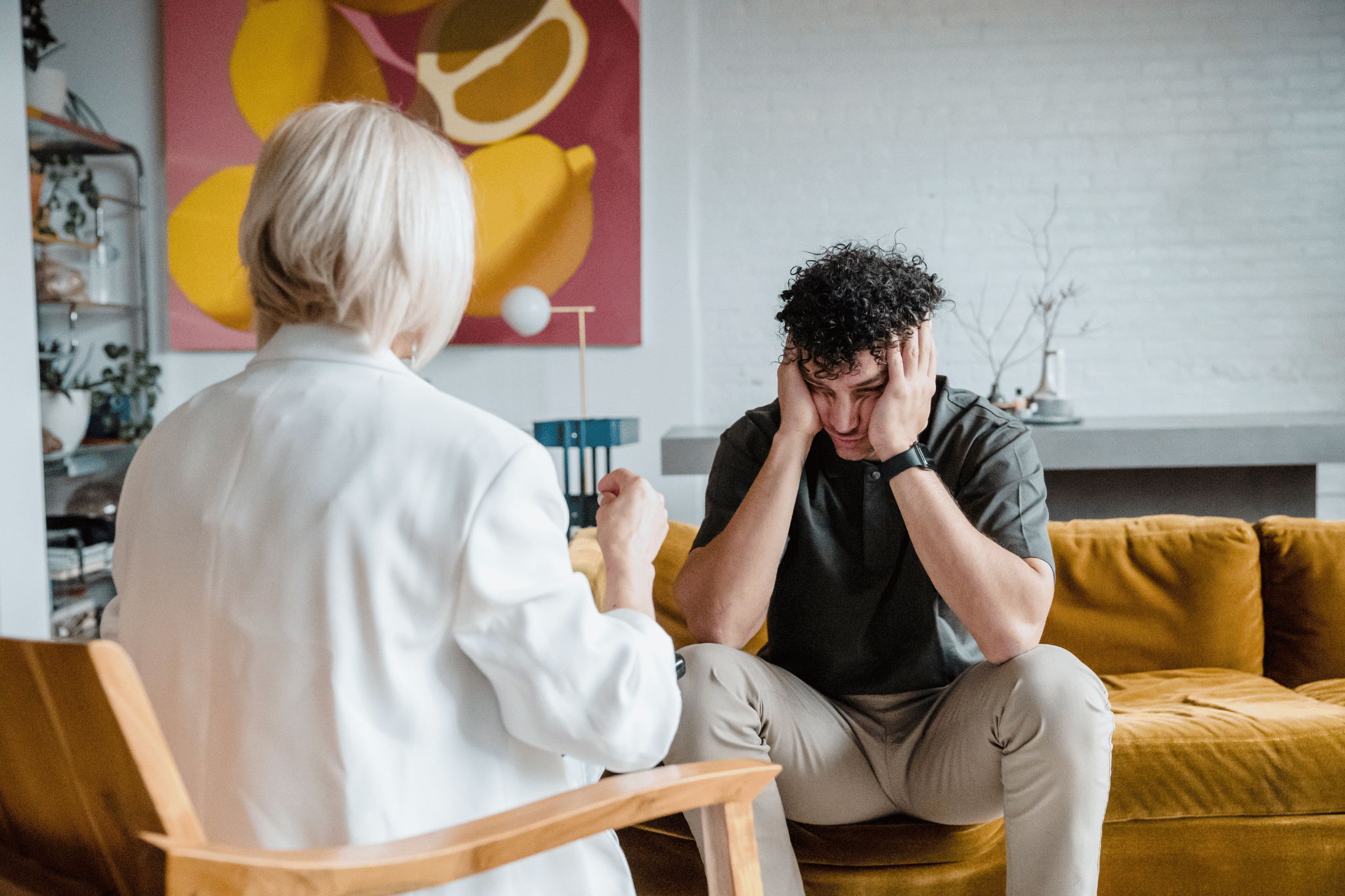Understanding Extreme Anxiety Symptoms: What to Look For
Extreme anxiety can feel overwhelming. It may impact the mind, body, and emotions all at once. While occasional worry is a natural response to stress, symptoms of severe anxiety and depression often go beyond normal nervousness. These symptoms can interfere with school, relationships, and overall health.
When anxiety becomes chronic or intense, it may signal a diagnosable mental health condition. Recognizing early warning signs and understanding the risks can help families get the support they need before symptoms worsen.
Signs of an Anxiety Disorder
Anxiety disorders involve ongoing worry, fear, or panic that affects how someone thinks, feels, and behaves. A person with severe anxiety may feel constant unease, experience emotional outbursts, or avoid situations that trigger distress. Physical symptoms are also common. These may include muscle tension, rapid heart rate, dizziness, nausea, and shortness of breath. Some teens describe these sensations as feeling like their heart is racing or pounding, known as palpitations or tachycardia.
Emotional symptoms such as irritability, fear of embarrassment, or a persistent sense of dread can affect social skills, school performance, and personal relationships. Sleep disturbances like insomnia often develop, and the lack of rest can lead to fatigue, poor concentration, and physical headaches. When anxiety reaches this level, it may also increase the risk of substance abuse, as individuals may turn to alcohol or other substances to try to cope.

Generalized Anxiety Disorder (GAD)
Generalized Anxiety Disorder, or GAD, causes ongoing and excessive worry about daily life events. Teens with GAD may worry about school, health, relationships, or their future—even when there is no clear threat. This worry feels constant and uncontrollable.
The stress caused by GAD can lead to fatigue, sleep problems, and trouble focusing. Physical symptoms such as muscle aches, stomach pain, or nausea are also common. These effects may push a person to avoid school, activities, or social events, which can worsen feelings of isolation. In some cases, untreated GAD can lead to severe depression and substance use.
Other Types of Anxiety Disorder
Besides GAD, other types of anxiety disorders include panic disorder, social anxiety disorder, specific phobias, and agoraphobia. Each has unique symptoms and challenges.
Panic disorder causes sudden, intense fear. Panic attacks may include shortness of breath, rapid heartbeat, sweating, dizziness, and fear of death. These attacks can feel so severe that some people visit the emergency department, fearing a medical crisis. Social anxiety disorder involves extreme nervousness in social settings. A teen might say, “I have extreme social anxiety,” to describe how hard it is to speak in class, attend parties, or even order food at a restaurant. Fear of embarrassment or judgment becomes overwhelming.
Specific phobias create intense fear about a particular object or situation, such as flying or injections. Agoraphobia involves fear of leaving home or entering crowded places, where escape might be difficult. These types of anxiety may lead to avoidance, further increasing stress and emotional distress.
What Are the Most Common Types of Anxiety?
The most common types include generalized anxiety disorder, panic disorder, social anxiety disorder, specific phobias, separation anxiety disorder, and agoraphobia. While each type presents differently, all share symptoms of fear, panic, and heightened physical arousal. These conditions can appear alone or with other mental health challenges like bipolar disorder, depression, or substance use.
What Are Some Anxiety Symptoms?
Anxiety can affect every part of the body. Emotional symptoms often include fear, panic, irritability, and a racing mind. Physical symptoms may involve tight muscles, dizziness, rapid heart rate, nausea, diarrhea, and shaking. Some individuals experience symptoms that resemble medical conditions such as asthma or hyperthyroidism. In fact, teens often visit a health care provider thinking they have a physical illness, only to discover that anxiety is the underlying cause.
Other symptoms include changes in appetite, excessive sweating, and difficulty breathing. These physical symptoms often occur during high-stress moments, such as before an exam or in social situations. Repeated episodes may lead to fear of future attacks, known as anticipatory anxiety.

How Can You Tell If Your Anxiety Is Normal or a Sign of Anxiety Disorder?
Some anxiety is a normal part of life, especially during adolescence. However, three main questions can help determine whether anxiety may be part of a disorder.
First, does the anxiety interfere with daily functioning? If fear or panic keeps someone from going to school, maintaining friendships, or participating in family life, it may be more than temporary stress. Second, how severe are the symptoms? Extreme anxiousness and panic attacks that cause shortness of breath, chest pressure, or lightheadedness are signs that the anxiety is not typical. Third, is it normal to feel this way in certain situations? Feeling nervous before a test or speech is common, but extreme nervousness symptoms that appear daily or across many areas of life suggest the need for professional support.
Causes of Anxiety
Several factors may contribute to the development of anxiety. Genetics play a role—having a parent with an anxiety disorder increases the chance of developing one. Brain chemistry is another factor. Low levels of serotonin, norepinephrine, and other neurotransmitters can increase emotional sensitivity and reduce the brain’s ability to manage stress.
Environmental influences also matter. Exposure to domestic violence, grief, neglect, or other trauma during childhood increases risk. Some people develop anxiety following major life changes or after a health scare. Teens who experience chronic stress or lack coping skills may be especially vulnerable.
Medical Causes
Anxiety can also stem from medical conditions. These may include hyperthyroidism, asthma, heart problems, or neurological conditions like multiple sclerosis. In some cases, medications such as stimulants or antidepressants may have anxiety as a side effect. Withdrawal from substances like alcohol or benzodiazepines can also trigger anxiety symptoms. It’s important to rule out medical causes during a diagnosis, especially when symptoms appear suddenly or worsen quickly.

Risk Factors
Several risk factors increase the chance of developing an anxiety disorder. These include a family history of mental illness, low self-esteem, shyness, substance use, and exposure to trauma or chronic stress. Physical health conditions and hormonal changes during adolescence can also increase vulnerability.
According to the Anxiety and Depression Association of America, anxiety disorders are among the most common mental health concerns in young people today. Without intervention, they can lead to more severe outcomes, including depression, addiction, and self-harm.
Complications
If left untreated, anxiety can lead to long-term complications. These may include academic failure, strained family relationships, drug or alcohol use, and increased visits to the emergency department. Physical symptoms such as fatigue, tension, and headaches may become chronic. Severe anxiety can also raise blood pressure and increase the risk of cardiovascular problems over time.
Emotional consequences include social isolation, ongoing distress, and suicidal thoughts. Early diagnosis and effective treatment can prevent these issues and improve long-term outcomes.
Prevention
While anxiety cannot always be prevented, several strategies can reduce its impact. Encouraging open communication at home and school is a strong protective factor. Parents and caregivers can help by teaching coping skills such as journaling, exercise, and guided breathing. Meditation, mindfulness, and relaxation techniques support emotional regulation. Limiting caffeine, maintaining regular sleep routines, and managing screen time also contribute to overall emotional stability.
Medical treatment may include therapy, such as cognitive behavioral therapy (CBT), along with medications like selective serotonin reuptake inhibitors (SSRIs), anxiolytics, or beta blockers. Physicians should carefully monitor medication dose and side effects, especially in teens. Every patient responds differently, so care must be individualized.
Conclusion
Extreme anxiety and depression can cause serious problems if left untreated. Symptoms such as panic, insomnia, nausea, fear, and avoidance are not just emotional—they affect physical health and behavior. If your teen is struggling with extreme nervousness, distress, or fear in daily life, professional treatment can help.
At Adolescent Mental Health in Orange County, our therapists and health professionals offer evidence-based therapy programs for teens experiencing severe anxiety. We work closely with families to provide education, stress management tools, and personalized care. Contact us today to learn how we can help your teen feel better, think clearly, and live with confidence.









